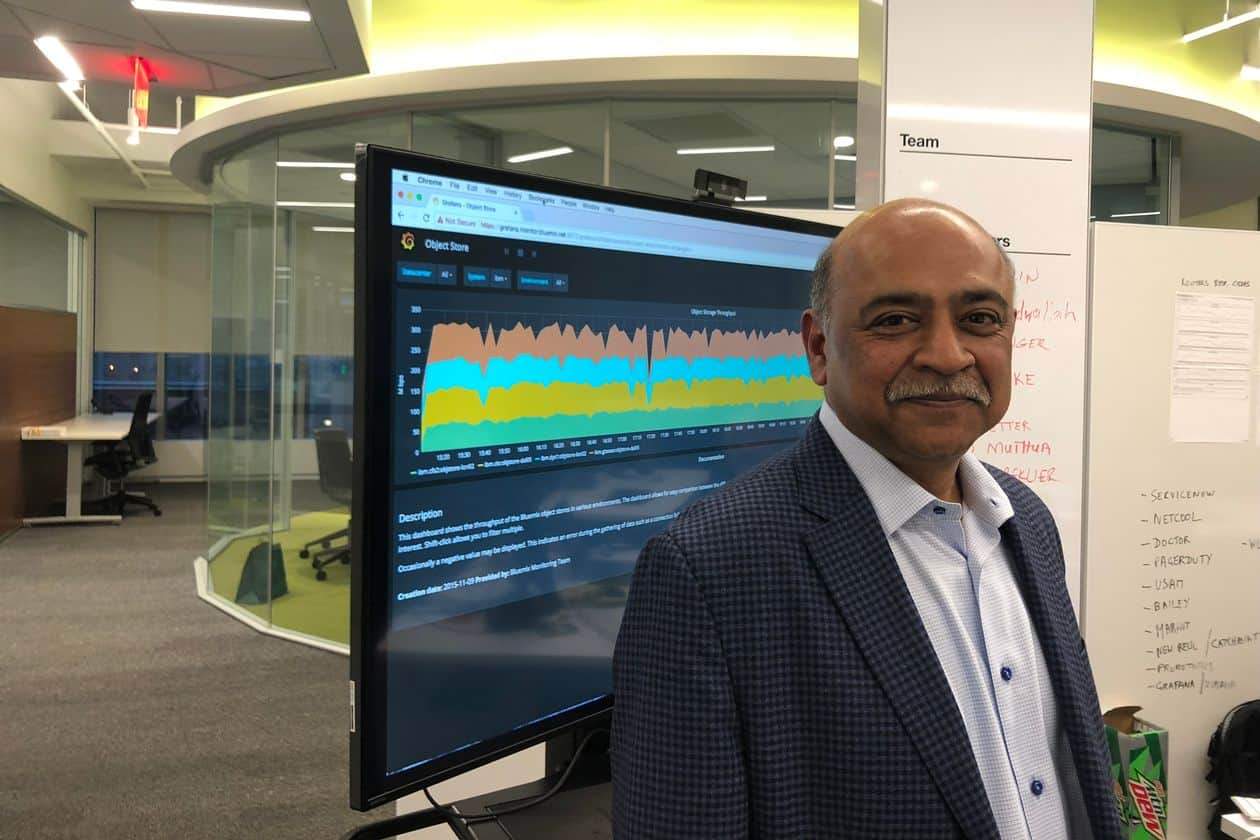IBM CEO Lays Out New Initiatives in Cloud, AI

Mr. Krishna, 57, formally became CEO on April 6. He succeeded Ginni Rometty, who led the company for eight years. She left IBM in a stronger financial position and pushed the technology giant into new areas of potential growth, including AI and cloud-computing services for business.
Sustainable revenue growth has remained a challenge, especially when compared with the performance of other large tech companies, The Wall Street Journal wrote in January.
As he addresses the need for growth, Mr. Krishna must drive into the headwinds of a global economic crisis triggered by the coronavirus pandemic.
“I think I’m a realist in terms of where we are headed,” Mr. Krishna said Monday in an interview with reporters from the Journal. On April 20, he withdrew the company’s annual earnings guidance, announced a decline in first-quarter sales, and took a restructuring charge, citing the coronavirus crisis.
Nonetheless, Mr. Krishna remains positive overall. “I do fundamentally believe in the power of technology to change the way we live for the better.” He said the company was focused on markets where there was plenty of room for growth.
In recent years, IBM has bet on hybrid cloud computing, in which companies use a combination of their own data centers and computing resources leased from others and accessed online. The hybrid cloud was key to IBM’s 2019 acquisition of Red Hat Inc., an approximately $33 billion deal in which Mr. Krishna played a key role. It also has placed a major bet on the adoption of AI by corporate users.
Mr. Krishna said the company believes the marketplace adoption of hybrid cloud technology is only about 20% complete, and that the adoption of AI is about 4% complete.
The pandemic will “dramatically accelerate” the adoption of hybrid-cloud and AI, Mr. Krishna said, as companies turn to cloud services to help their employees work and serve customers remotely, as well as to AI to automate certain types of work.
“This will accelerate what may have been a five-year journey,” Mr. Krishna said ahead of the company’s annual Think Digital conference. Normally an in-person event, it will be held online, primarily on Tuesday and Wednesday.
The company expects more than 80,000 people to attend the virtual Think Digital 2020 conference, excluding IBM employees. The in-person event usually attracts about 30,000 people, including employees, Mr. Krishna said.
The new products being introduced by IBM aim to differentiate the company in the push to expand the use of the hybrid cloud and AI.
Among them is IBM Watson AIOps, which uses AI to automate the way companies detect and respond to information technology anomalies in real-time. “This is really about applying AI to your IT infrastructure,” Mr. Krishna said.
The technology is integrated into familiar platforms, including those from Box Inc. and Slack Technologies Inc.
“People are very used to using Slack and Box…they will really be right in the flow, so you don’t have to go change the process,” Mr. Krishna said. IBM’s approach to the market was “becoming more partner friendly,” he added.
Unexpected IT outages can cost companies about $260,000 per hour, according to IBM. Watson AIOps can analyze thousands of possible problems related to a database server that caused an IT outage, for example. It can suggest actions to remedy the problem, Mr. Krishna said.
Chirag Dekate, a vice president and analyst at tech research firm Gartner Inc., said Watson AIOps is entering a “very crowded space.”
Another set of products is focused on next-generation 5G mobile network and the so-called edge, which refers to sensors, computers and other devices that are deployed in the field.
One new product, called IBM Edge Application Manager, uses AI to manage up to 10,000 internet-connected devices and other edge applications. In edge computing, data is processed and analyzed on or near the device where it is generated instead of first being sent to the corporate cloud or data center. It is designed for a range of internet-connected devices, such as equipment that performs robotic surgery, according to IBM.
The product also can make sure that edge applications are secured, deployed and updated with the latest patch fixes, Mr. Krishna said.
The company also is launching new products that will help chief information officers automate business planning and operations, as well as call centers.
The new products are being launched amid a period of great economic uncertainty. Mr. Krishna said he didn’t know how long the economic downturn triggered by the pandemic would last, and declined to say whether IBM would lay off or furlough employees because of the downturn.
“I’m not making any predictions in either direction in that case,” he said. “The demand profile that I had in mind in the beginning of January, is, I’ll say tongue in cheek, a little bit different than today.”
Photo: IBM CEO Arvind Krishna. The company is set to launch Ai and cloud-computing initiatives this week. - PHOTO: STEVEN ROSENBUSH / THE WALL STREET JOURNAL




